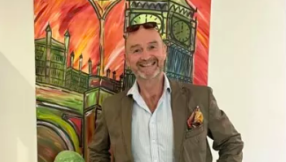Harry Potter & the Magic of Love (warning: contains plot spoiler!)
The Potter story begins with Harry's mother's self-sacrifice for her infant child. It is this love that protects him from the Dark Lord's murderous intent. Harry is covered by his mother's blood - her life for his. Similarly, in the first novel, Ron risks death that others might live but survives, whilst Flammel, the owner of the Philosopher's Stone, consents to its destruction, and thereby foregoes his own immortality.
As the series progresses, Harry comes to realise that what distinguishes him from his enemy is his capacity to love. In the denouement, that capacity is tested to the limit, as he, like Aslan, like Jesus, deliberately puts himself in the power of his enemy.
Rowling's exploration of love and its costs, however, goes wider. Yes, the children are central but, unlike most children's fiction, the adults in the Potter stories are critical both to the action and the themes. So Harry's allies - surrogate families and godparents and teachers - are not just committed to a cause but committed to Harry. In particular, Dumbledore, Harry's headmaster and surrogate father, nurtures him, protects him, empowers him, loves him. Still, we discover, he had always known that, if Voldemort were to be defeated, Harry would have to die. What kind of love, the film asks, can nurture a child with that dread knowledge? What kind of love enables a loving 'father' to raise a son for a death so premature?
And what kind of love does Snape display? Not only working, at enormous personal risk, to defeat Voldemort but committed to the protection of Harry, the child of a man he despised and of a woman, now dead, whom he had loved from childhood but who had not loved him. Here is the nobility of an unrequited love that does not curdle to bitterness or revenge but does what the beloved would want, even though that love cannot be returned. Selfless faithfulness indeed.
True love, Rowling teaches us, comes in many forms. And she has thereby given us, it seems to me, one of the richest explorations of love ever offered in children's fiction.
Bravo, I say.
Mark Greene is Executive Director of the London Institute of Contemporary Christianity













